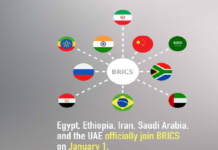Prime Minister Abiy Ahmed stressed the need for having a robust and predictable financial safety net to address the interconnected crises of low income countries, for African countries in particular.
The premier participated on the roundtable entitled “Evolving the model of multilateral development Banks to address the 21st century challenges” at the Summit for a New Global Financing Pact in Paris, France.
Sharing his perspectives of the recent development challenges of the world, the prime minister emphasized the need to implement past pledges with resolve, for instance, in climate change, boost concessional financing facilities, create a robust mechanism to finance the transition to a green future and end the debt crisis.
He noted the developing world particularly, African countries have been going through interconnected crises such as financial, climate, debt and also cost living crises.
He mentioned that in some places countries are also challenged by instability.
“You might ask what makes it special in Africa. What makes unique in Africa is the magnitude of the crises as well as the interconnectivity of the crises. For instance, inflation, almost in all commodities has risen sharply in many countries. Private and public debt has reached new heights.”
Prime Minister Abiy added today in most low income countries, the headaches of governments are not about development, but to think about how we can manage debts.
“All our efforts have been to manage debt instead of development,” Abiy underscored.
He further said that nations are also facing devastating climate change effects. Thus, these challenges are looking for huge amounts of resources, he underlined.
Moreover, despite an elevated financial need, the prime minister revealed that African countries are facing an unprecedented funding squeeze which has aggravated the existing vulnerabilities.
However, Abiy argued: “In my opinion, we fix this problem, in a place where we can find it in a bigger magnitude and succeed in Africa. It will help us all to bend the arc of development history. Because challenges are the largest in Africa and the needs are the most urgent.”
Accordingly, those goals should be to safeguard macro stability, to support low income countries and also to sustain future prosperity, the premier suggested.
The prime minister elaborated: “So as to address this challenge, we need a robust and predictable financial safety net. Without resources there is no way to address this challenge. If we use it as an entry point, financial resources must be at the center of this game. They are the main players of this game. If they are going to play a great role in addressing this challenge, I think we should make reforms on these financial institutions.”
Abiy stressed the need for injecting additional capitals for financial agencies so as to provide enough resources for low income countries.
He also underlined on boosting concessional financing and grant adding that “without getting enough amount of concessional financing and grant, today’s interconnected challenges are not in a way that we are doing business today.”
That is the only way we can minimize additional crises and also focus on our objectives of development, he said.
Speaking on financing on green development, the prime minister said that Ethiopia is hugely invested in this sphere.
“We have to finance a green future. I don’t know what others are doing, in Ethiopia, we are financing a low carbon pathway. Ninety percents of our energies are from green sources. We are investing in hydro, we are investing in wind, we are investing in geothermal, and in solar energies.”
Besides on investment clean energy, Ethiopia also has an initiative called green legacy, Prime Minister Abiy indicated.
“We have started this initiative a few years back, in 2019. It will continue until 2026. By then, we will have planted 50 billion tree seedlings.”
Source: ENA














